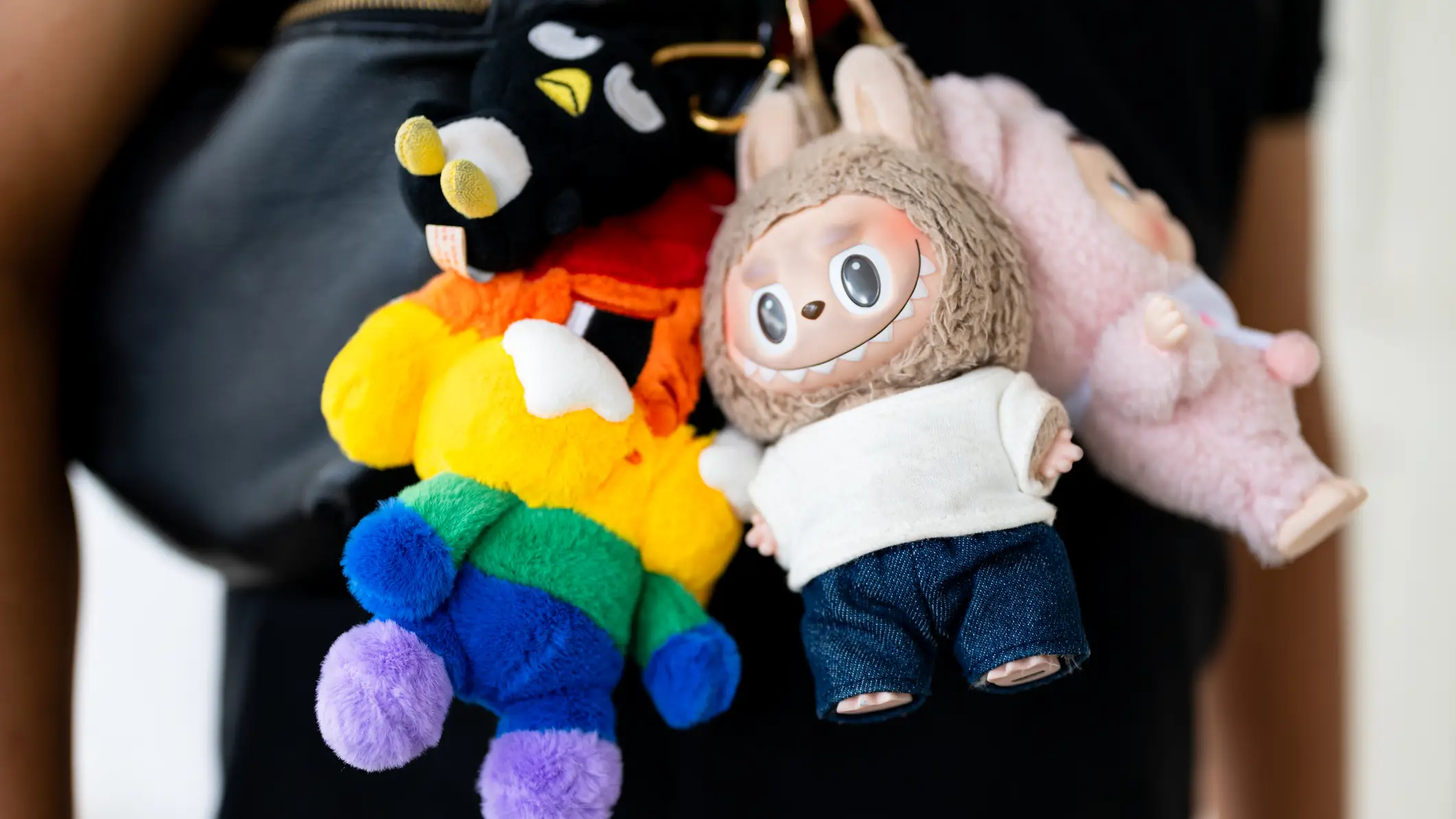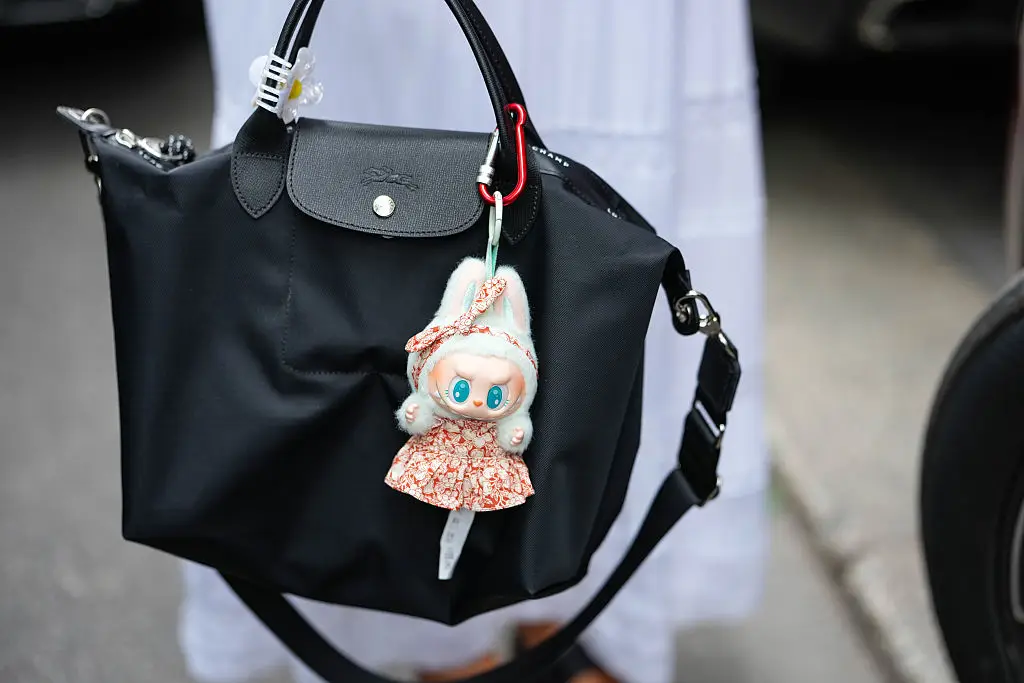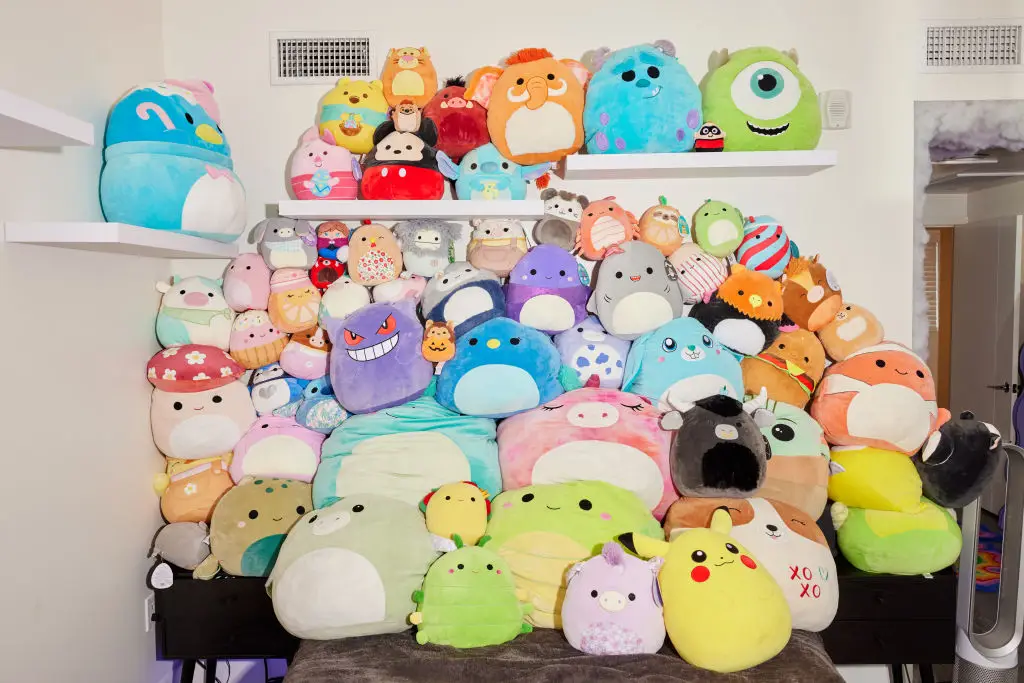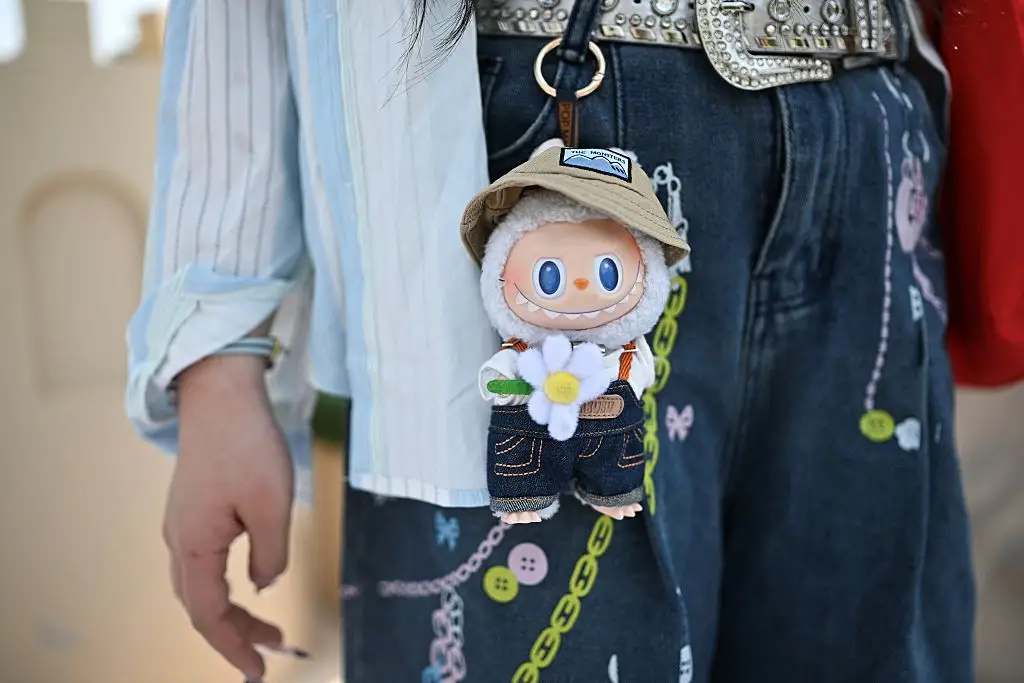
Topics: Celebrity, Gen Z, Life, Shopping, Social Media, Tyla Exclusive, Labubu

Topics: Celebrity, Gen Z, Life, Shopping, Social Media, Tyla Exclusive, Labubu
If you walk down the high street today, it’s almost guaranteed that within 10 minutes you’ll see a fluffy and slightly ugly-looking Labubu hanging from someone’s bag.
And of course, most Gen-Z bedrooms aren’t complete without at least one Jellycat - because who doesn’t love a plushie that looks like a boiled egg?
Even if you pop in for a quick burger at McDonalds, Happy Meals now include different collectible varieties of Squishmallows, and people are obsessed.
There’s no doubt that ‘trinket culture’ is well and truly thriving throughout the world at the moment, with Pop Mart blind boxes on the rise and Sonny Angels hanging from car mirrors and phone cases alike.
Advert
Daniel Fisher, Head of Categories at shopping marketplace Whatnot claims the platform in particular has seen a huge spike in collectible categories, especially around Labubus.

He explained that Labubu live sales alone have increased 300% month-on-month since March and sellers who focus on Labubus have doubled during that same time.
But the question is, why? As a generation, we just can’t seem to get enough of ‘stuff’ at the moment and more and more adults are turning to products aimed at children.
To try and tackle this question, Tyla spoke with psychologists and brand experts about the fast-growing trend and what it really means.
Chartered clinical psychologist Tracy King explains that she sees the rise of trinkets as a ‘response to the emotional climate Gen Z are growing up in’.
She explained: "On the surface, they’re fun and whimsical. But psychologically, they’re deeply symbolic: these objects offer small, accessible moments of comfort, control, and identity in an unpredictable world.
"The old idea of the career ladder offered a sense of linear progression—work hard, move up, gain security. But for Gen Z, that ladder has been replaced with something more like an escape room.
“You’re expected to solve problems with no clear instructions, hit invisible milestones, and often find the goalposts moving entirely.”

Dr King cited rising living costs, job insecurity, and the collapse of traditional stability-markers like home ownership as the reasons why many young people feel out of control.
She added: “In this landscape, collectibles become something you can control. They’re emotionally grounding, they provide joy in manageable doses, and they often connect you to community. In a world full of uncertainty, buying a plushie in a strawberry hat becomes nervous system regulation.”
The psychologist went on to explain how, while previous generations were largely saving for mortgages and pensions, Gen Z are instead ‘investing in now'.
Dr King said: “Gen Z were raised in a digital world where identity is curated, not assumed. They’ve watched global crises unravel with pandemics, recessions, the climate emergency—so the big life goals that guided previous generations often feel out of reach.
“Small joys, soft comforts, and identity-aligned purchases feel both accessible and meaningful.
“And in a social media landscape where aesthetics are a form of communication, trinkets become part of how people express emotion, personality, and belonging.”

Fellow psychologist and co-founder of US Therapy Rooms, Dr Daniel Glazer agrees, adding: “Gen Z came of age during recessions and a pandemic, when conventional milestones felt postponed, so they redirect modest discretionary cash toward 'micro-luxuries' that deliver immediate control and joy.”
As for why so many adults are choosing products aimed at children, Dr King clarified that it’s not ‘out of immaturity’ but instead is a ‘form of emotional repair’.
She added: “These soft, playful objects evoke feelings of safety, care, and nostalgia, things that might’ve been missing or cut short in early life.
"This is inner child work in action.”
Dr King is also confident the trend will be going nowhere - if anything, it will ‘evolve and deepen’.
She told Tyla: "As long as society remains fragmented, and demanding, people will continue to seek soft, small, symbolic ways to feel better.

"Trinket culture is a response to burnout and disconnection. It’s not a shallow trend. It’s a psychological response to the demands of modern life.”
And consumer expert Fisher agrees that the cycle is bound to continue, especially with celebrity endorsement.
He added: “The trend of new collectibles hitting the zeitgeist and older ones coming back on the scene will not die out anytime soon.
“With celebrities like Dua Lipa and Lisa from Blackpink styling Labubus as accessories, these toys have crossed into fashion and culture. On Whatnot, fans aren’t just collecting, but rather curating, trading, and sharing them live, turning each stream into a social event.”
So, trinket culture lives on - and it’s only a matter of time before the newest hot collectible hits the market and the obsession starts all over again.
Tyla has contacted representatives for Popmart, Jellycats and Squishmallows for comment.